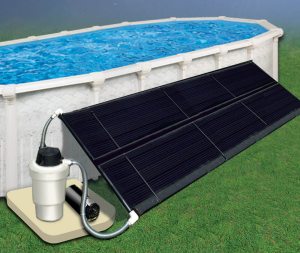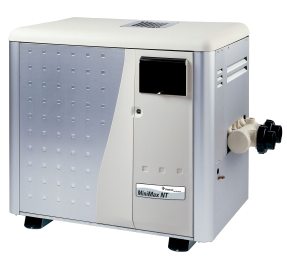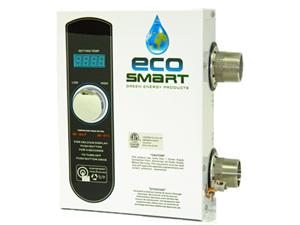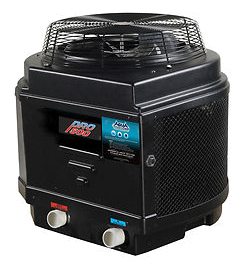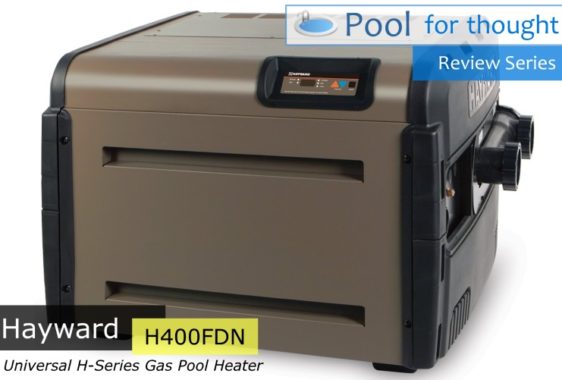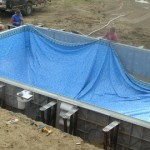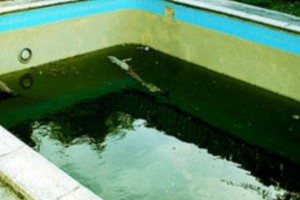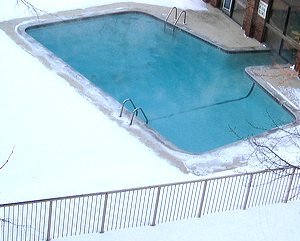
This article is for the pool owner or owner-to-be on how to buy the best heater for your pool. During the hot seasons, owning a pool can be like having your own personal oasis in your backyard. As the outside temperatures rise, jumping in your pool is a great way to refresh and relax while the days heat up.
Unfortunately, unheated pools can only be used when the weather is hot and sunny, as the higher daytime temperatures and mild nights keep the water warm. As the climate gets cooler, the pool becomes too cold to get into and still be enjoyable. Installing a pool heater is the best way a pool owner can extend their swimming season to get the maximum time available to use their pool.
There are several ways to heat up swimming pools and each type of system has its own advantages and disadvantages. The best kind to get depends on multiple things like your pool size, initial and long-term budget, and the climate in your area.
What’s important to you?
Before you begin selecting a swimming pool heater, you need to determine what is important to you to heat your pool. Ideally, everyone would want something that heats the pool quickly and reliably, that uses little to no energy, makes no noise, does not need maintenance, is not expensive, and is easy to install. Unfortunately, no pool heater can do all those things. Each type of pool heater comes with trade offs, and so you need to ask yourself a few questions:
Energy efficient and environmentally friendly?
Even if you are extra proactive when it comes to protecting the environment, there are options for pool heating. With the right setup and for the right price, you can nearly eliminate all energy costs. When choosing any heater, you need to select one that is appropriately sized to your pool. Too large, and you have an expensive system that uses much more energy when running. However, a heater too small for a pool will have to run more often, which ends up using more energy in the long run and decreases the life of the heater.
Least expensive to purchase and install?
Assuming you would hire a professional to install the system, different types of heaters require different installation time and complexity. Some require a separate pump, control valves, electrical and fuel hookups and lines.
Cheapest to use?
Even if a pool heater is easy and cheap to install, you have to factor in the cost of ownership. This includes the ongoing cost of supplying energy to the heater, plus the cost of maintaining the pool heater and its component systems.
Most effective at heating?
If making sure your pool heater heats quickly, to the temperature you prefer, and maintains this temperature all through the pool season, then you have to look carefully at your options. You may have to sacrifice spending more money on a higher pool heater cost, plus increased cost of using the heater.
Low Noise level?
Some neighborhoods have strict noise limits for pool equipment, or you may simply want to make sure you have a quiet and peaceful pool environment. Some heaters contain extra pumps, fans, and blower motors, all of which produce noise. Some heaters, like electric pool heaters, produce no noise at all.
Where do you live?
The types of heaters available to you depends on where you live. Not just where in your city or state, but rather…where in the world?
Is your area primarily:
- sunny or cloudy?
- hot or cold?
- have large seasonal temperature swings?
- rainy or dry?
- windy or calm
- have air that is humid or dry?
- in an urban setting or remote?
Some pool heaters work better in some climates, with an obvious option being solar pool heaters for sunny climates. If you live in an area where it is foggy, cloudy, or the local terrain blocks sunlight, then solar heaters might not be an option.
You may also have limited access to fuel sources. For example, natural gas pool heaters may not be an option if you live in the country, so you would have to rely on other fuel or energy sources to power your pool heater such as a propane or fuel oil. The choice in heater also depends on energy rates and how often and how warm you want the water. Some places have high electrical usage rates coupled with peak charges during daytime summer periods, but overall low natural gas prices. In other areas, the reverse may be true, and in still other areas, all energy rates may be high, forcing you to look for low or no-energy heater options.
Once you have an idea of what is important to you, it’s time to see what is available for heating your swimming pool.
What kinds of swimming pool water heaters are available?
There are four major kinds of heating systems to consider: solar, electric, gas/oil, and heat pumps. Each one can extend your swimming season as well as make the water more comfortable at night and in the early mornings.
Solar Pool Water Heaters
Click Here for Solar Pool Heater Products and Reviews
Solar heaters gather the ultraviolet energy from the sun and use it to heat up the pool. Typically, solar systems are very durable and last longer than gas and electric heaters and heat pumps. On average, they continue to function for seven to 20 years depending on the brand and how well they are maintained.
Choosing a solar heater kit is a decision that is environmentally friendly because it does not release carbon dioxide into the air or consume resources like gas or electricity. Since the power comes from the sun, the only cost associated with owning a solar system is occasional maintenance.
Solar pool heaters can cost anywhere from several hundred to several thousand dollars depending on the size of the pool. Naturally, the larger the pool is, the more expensive the system costs. However, considering that solar heaters cost nothing or nearly nothing to run, and they can last up to 20 years, the high investment may be worth it. Solar heating options range from simple ‘lily pad’ floating mats that float freely on the water, to roof-top or ground level installed solar cell systems that convert energy from the sun into electricity that is then used to heat the water. Often an additional water pump, valve system, and controls are installed as part of more complicated but capable solar heaters.
The only thing to keep in mind is that solar heaters need the sun to charge, so during bad weather they may run out of power. At night, solar heaters obviously are not providing any benefit.
Natural Gas, Propane, and Fuel Oil Pool Water Heaters
Click Here for Gas Pool Heater Products and Reviews
Gas and oil pool heaters operate by burning a fuel source such as a flammable gas or oil as pool water is pumped through a metal heat exchanger. The burning fuel heats the exterior of the heat exchanger, which transfers the heat to the water flowing through the interior of the exchanger. Basically, cool pool water enters the heater, and warm heated water exits the heating chamber of the heater and is pumped back to the pool.
The cost associated with running one of these heaters varies depending on the fuel prices in your area. Propane, natural gas, and fuel oil models cost relatively the same price, so the decision on which kind to buy depends on the cost of each type of fuel, the efficiency of the unit, and the expected cost of fuel. In general, anything that is rated with as 80 percent efficient or higher is a good buy. If you are environmentally conscious, look for the low-nitrogen oxide (NOx) models that produce lower amounts of carbon dioxide.
The nice thing about gas and oil heaters is that they are usually the most affordable systems to purchase. Usually they are priced between $800 and $6,000 depending on the model and pool size. Another advantage is they provide heat reliably, as a temperature can be set and heater cycles on and off maintaining this water temperature.
There are a few downsides of owning a gas or oil heater to consider. For safety reasons, it is recommended that a professional install the heater. This adds to the overall cost. Since these heaters use gas or oil as their energy source, owners continually have to buy fuel to keep their pool heated.
Gas heaters have a lower lifespan than some of the other kinds. On average, they last about five years. However, be sure to read the manufacturer’s information on properly maintaining the heater. It is possible to find a quality heater that comes with a long warranty, and they can last well beyond their specified life span if properly maintained and protected from weather extremes.
Fouling is a common term when talking about gas and oil heaters. As fuel is burned, a small amount of fuel is not burned, plus some carbon or soot is generated and passed by the heat exchanger and out the exhaust vent of the heater. Over time, this unburned fuel and soot mixture builds up on the heat exchanger and acts as a layer of insulation. The copper heat exchanger can no longer pass as much heat to the pool water, and the efficiency of the overall heater plummets. This soot and heat buildup can progress to the point where the heat has nowhere to go but out the exhaust pipe of the heater, plus leak into the interior areas of the heater exposing control electronics and systems to excessive heat to the point of failure.
The delicate copper heat exchanger inside most pool heaters of this type are very susceptible to corrosion from unbalanced pool water. Pool water with low alkalinity or low pH can be acidic, which the water will actively and quickly begin corroding the interior of the heat exchanger. Corrosion is irreversible, so maintaining balanced pool water is critical to keep the pool heater operating correctly. Pool water with too high of hardness, pH, and total alkalinity can result in scale building up inside the heat exchanger and heater plumbing. If left too long, this scale can build up over time and reduce and restrict the water flow through the heater, plus reduce the heating efficiency of the heater.
Electric Pool Heaters
Click Here for Electric Pool Heater Products and Reviews
An electric pool heater should not be confused with an electric heat pump, which is explained further below. A traditional electric pool heater warms up the pool by heating up the interior of a metal coil. The heated coil is then exposed to the pool water which heats the water. Of all the types of pool heaters, purely electric heaters are the least efficient to operate. The amount of energy it takes to heat an entire pool makes this a poor choice. Although spas and hot-tubs commonly have electric heaters, they contain much less water and usually do not need to be continuously heated. It takes a long time to raise the temperature in a pool this way, which means that a lot of electricity is used in the process. This type of heater is affordable to purchase, but the cost to operate them adds up quickly.
Additionally, you may also be running air conditioning in your house in the summer. Some areas have stepped, or peak electrical rates and times during the day. If you consume enough electricity coupled with an electric pool heater and the already-running main pool water pump, you may realize on your next electric bill you have been using electricity at increased rates causing your electric bill to skyrocket. Before you purchase an electric heater, you need to learn and understand your local electricity provider’s pricing structure.
Heat Pumps
Click Here for Pool Heat Pump Products and Reviews
Heat pumps either run off of electricity or solar power. They are far more efficient in heating up the pool than the coil-based ones, and they tend to use less energy. A heat pump works by extracting the existing heat in the air, heating it up, and then transferring that warmth into the pool. The only downfall is that they only operate if the temperature is above 45 degrees Fahrenheit. Therefore, they are not the greatest solution for those who live in colder climates.
The pump systems usually cost around $1500 to $5,000 to purchase. They are more expensive than gas or electric heaters, but they use less power to generate heat, so they cost less to operate. They also have a longer life expectancy at around five to ten years.
Consider the following pros and cons of owning various types of swimming pool heaters already discussed:
Pool Heater Pros and Cons
| Heater Type | Pros | Cons |
|---|---|---|
| Solar Heaters See Products |
|
|
| Gas and Oil Heaters See Products |
|
|
| Electric Heaters See Products |
|
|
| Heat Pumps See Products |
|
|
What size of pool heater should you buy?
How much water a heater can warm up depends on its BTU (British Thermal Units) rating. One BTU can raise the temperature of one pound of water by one degree Fahrenheit. Therefore, a heater with a 20,000 BTU rating could heat up a pool with 20,000 pounds of water within a reasonable amount of time. The higher the rating, the faster it can heat up the pool. Those who live in colder areas really should keep this in mind because they will need a higher rating than people who live in warmer climates.
In order to figure out how much BTU output is needed, you have to figure out the size of your pool and how much you want to raise the temperature of the water. For example, if it is 60 degrees outside and you want the water to be 80 degrees, you’ll need a heater capable of raising the temperature by 20 degrees. Use the following chart to figure out how many BTUs to look for. Keep in mind that some accessories, such as a solar blanket, can keep the pool up to 15 degrees higher, therefore, helping your heater keep the temperature higher.
| Pool Surface Area | BTUs Needed for a: | |||
|---|---|---|---|---|
| 5° Temp Rise | 10° Temp Rise | 15° Temp Rise | 20° Temp Rise | |
| 200 sq. ft. | 21,000 | 31,500 | 42,000 | 52,500 |
| 300 sq. ft. | 31,500 | 47,300 | 73,000 | 78,800 |
| 400 sq. ft. | 42,000 | 63,000 | 84,000 | 105,000 |
| 500 sq. ft. | 52,500 | 78,800 | 105,000 | 131,000 |
| 600 sq. ft. | 63,000 | 94,500 | 126,000 | 157,000 |
| 700 sq. ft. | 73,000 | 110,000 | 147,000 | 184,000 |
| 800 sq. ft. | 84,000 | 126,000 | 168,000 | 210,000 |
| 900 sq. ft. | 94,500 | 142,000 | 189,000 | 236,000 |
| 1,000 sq. ft. | 105,000 | 157,000 | 210,000 | 263,000 |
Conclusion
Installing a pool heater allows you to enjoy your swimming pool at comfortable temperatures for more months out of the year. However, selecting a heater isn’t as simple as running to the hardware store and plucking one off the shelf. You will need to do some research to find a unit that can handle the size of your pool and still remain within your set budget. Since there are several kinds of heaters to choose from that range in initial price and maintenance costs, it shouldn’t be too hard to find one that’s a good fit for your home. Simply be sure to get one that is the right size, has good efficiency ratings, and make sure that the outside area is properly set up for the installation.
Sources:
Photo Credits:
- “Pool in winter” photo by FrogBelly, Flickr.com.
